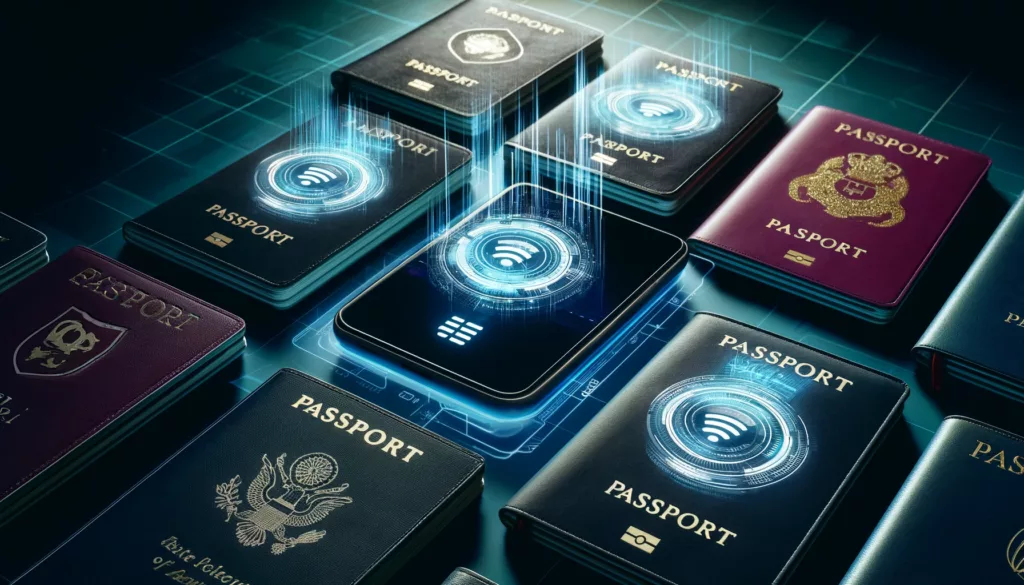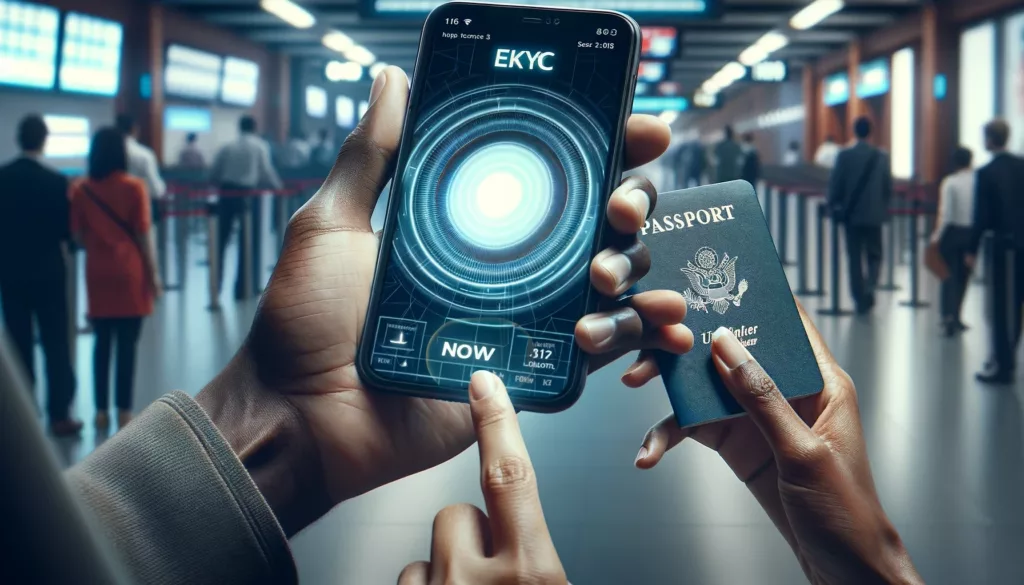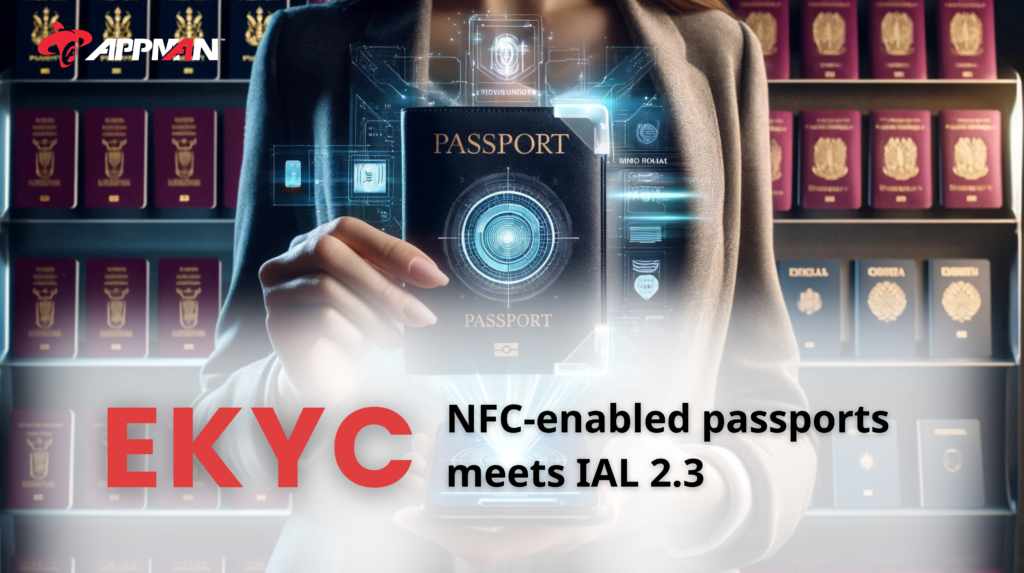In today’s fast-evolving digital landscape, knowing your customer (KYC) has evolved beyond mere business compliance to become a strategic cornerstone. NFC technology, a revolutionary tool embedded in modern passports, and Appman’s innovative eKYC solution are at the forefront of reshaping identity verification processes. This article explores how NFC-enabled passports streamline KYC procedures, achieving the rigorous Identity Assurance Level 2.3, and detailing how businesses can leverage these technologies for enhanced security and customer experience. The integration of NFC and KYC processes through eKYC platforms ensures a seamless, secure digital environment conducive to business growth

Understanding NFC-enabled Passports
Near Field Communication (NFC) is a set of communication protocols that enable two electronic devices, one of which is usually a portable device such as a smartphone, to communicate when they are within 4 cm of each other. Embedded in biometric passports, NFC chips contain encrypted personal data, making them a potent tool for secure and rapid identity verification. This section delves into the mechanics of NFC in passports, highlighting its benefits in enhancing the authenticity and efficiency of identity checks. The use of NFC technology in passports represents a significant leap forward in the eKYC landscape, streamlining processes for businesses across various sectors
The Role of KYC in Business and Compliance
Know Your Customer (KYC) standards are crucial for validating identities, essential in sectors like banking, finance, and telecommunications. This segment covers the legal implications and operational impacts of KYC, emphasizing the significance of attaining higher Identity Assurance Levels (IAL) to mitigate risks associated with identity fraud. With NFC and passport-based verification, the KYC process becomes more robust, providing businesses with a higher degree of security and compliance assurance

Appman’s eKYC Solution
Appman’s eKYC solution is designed to meet the complex demands of modern identity verification, integrating advanced NFC technology to read data from passport chips directly. This system not only speeds up the process but also enhances accuracy, ensuring compliance with international standards. The solution includes features such as real-time data capture, automated background checks, and integration capabilities with existing customer management systems. These functionalities make it an ideal choice for businesses aiming to streamline their KYC processes and improve user experience. By employing NFC-enabled passports in their eKYC processes, businesses can achieve a higher level of efficiency and security, making Appman’s solution a cornerstone of modern identity verification strategies
IAL Levels Explained and IAL 2.3
Identity Assurance Levels (IALs) are a set of standards that describe the robustness of an identity verification process. IAL 1 requires minimal confidence in the asserted identity’s validity, IAL 2 requires substantial confidence, and IAL 3 demands very high confidence, supported by physical presence during the verification process. Appman’s eKYC solution achieves IAL 2.3 by utilizing NFC-enabled passports, providing substantial assurance in identity accuracy without the need for physical presence. This capability marks a significant advancement in remote identity verification and aligns perfectly with modern KYC and eKYC standards

NFC Passport in KYC
Incorporating NFC passport reading into KYC processes unlocks numerous practical applications across various industries. In the banking sector, it can dramatically reduce the time and resources required for customer onboarding and due diligence. In the travel and hospitality sectors, it simplifies check-in processes, enhancing customer satisfaction. This section explores specific use cases demonstrating the efficacy of Appman’s eKYC solution, highlighting benefits such as improved security, faster processing times, and reduced operational costs, all while adhering to the stringent requirements of ETDA IAL 2.3

